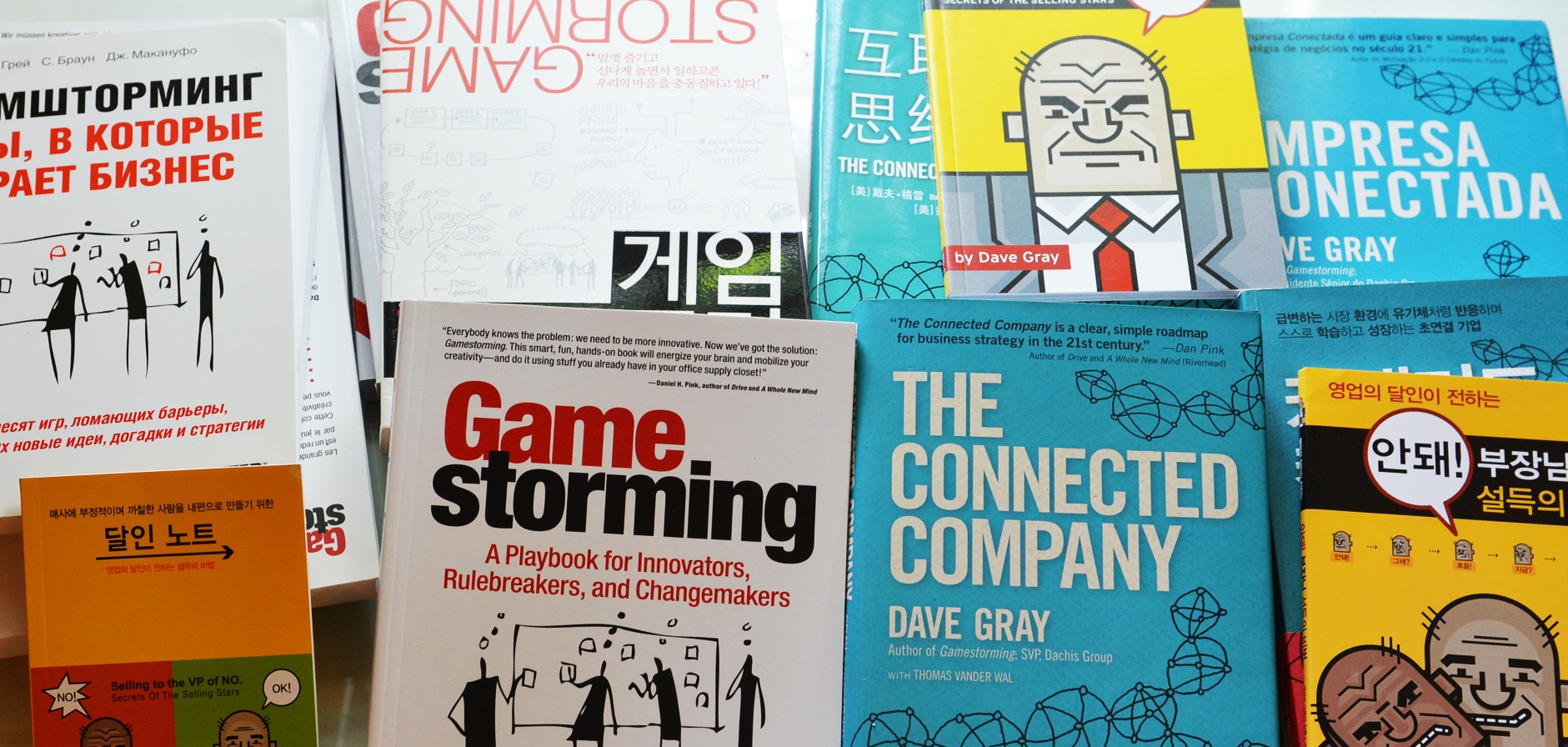Selling to the VP of No is a brief, simple, visual QuickStart guide to consultative selling.
Gamestorming is a playbook for innovators, rulebreakers, and change makers.
The Connected Company is a blueprint for creating a 21st-century organization.
Liminal Thinking is about cultivating a change mindset.
I didn’t set out to be an author. I write books when I need to learn about something or share ideas that I think are important.
Lesson 1: Nothing happens until somebody sells something.
You can’t start a company or launch a product without learning how to sell. One of my mentors, Randy Root, once said to me, “If you don’t know how to sell, you will work for someone who does.” So I set out to learn how to sell and manage sales teams. Randy is one of the best, and I’ve learned from many other masters of this often-misunderstood discipline, including another mentor, Gerhard Gschwandtner, Founder and CEO of Selling Power. I’ve also read everything I could find on mastering the art of selling. My first book is the result of this journey. One of my key learnings as a sales manager? Salespeople don’t like to read books, even books about selling! I solved this problem by writing Selling to the VP of NO, a super-brief, simple, visual quickstart guide to the world of consultative selling.
Lesson 2: Turn your magic into science.
The Science Fiction author Arthur C. Clarke once said, “Any sufficiently advanced technology is indistinguishable from magic.” When you have mastered a subject or skill, there’s a tendency to believe that “nobody else can do this” or “it can’t be taught.” This is hogwash. If you can do it, you can teach it. But first you have to learn how to turn your “magic” — your intuitive ability and unconscious competencies — into “science” — a repeatable and scalable framework. I wrote my second book, Gamestorming: A Playbook for Innovators, Rulebreakers, and Changemakers, to turn the “magic” of facilitative leadership, team-building, and innovation into a “science” for creativity, collaboration and co-creation. It is a practical handbook for innovators and change agents.
Lesson 3: Reverse-engineer the most successful organizations you can find.
It was clear to me by 2001 that Jeff Bezos is the Henry Ford of the 21st Century. In the same way that Henry Ford and his peers at GM, DuPont, and other industrial-age pioneers, Bezos and his peers at Google, Facebook, and other born-digital companies are reinventing organizational structures and systems for a software and information-driven world. The new rules of business in many ways seem to be a direct inversion of what we tend to think of as the tried-and-true rules of business. I spent three years reverse-engineering Amazon and similar organizations. The results are published in my third book, The Connected Company, a strategic blueprint for 21st-century organizations.
Lesson 4: There is one skill that makes transformation possible, and without it, you will sabotage your own efforts.
It took me many years of leading teams and working on large change programs to understand that the most important lever for change is inside people’s heads. This is a hard nut to crack because it’s impossible to measure inner thoughts with any accuracy and people are very good at concealing their true feelings and beliefs, especially in organizational contexts. The secret of true motivation is that it must come from within. My fourth book, Liminal Thinking, is about cultivating a change mindset.
I also highly recommend these books.

